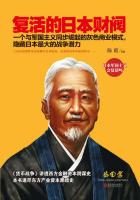"O blest be he! O blest be he!
Let him all blessings prove, Who made the chains, the shining chains, The holy chains of love!"
--Spanish Ballad.
"If you love a lady bright, Seek, and you shall find a way All that love would say, to say If you watch the occasion right."
--Spanish Ballad.
In the morning Isabel took breakfast with her sister. This was always a pleasant event to Antonia. She petted Isabel, she waited upon her, sweetened her chocolate, spread her cakes with honey, and listened to all her complaints of Tia Rachela.
Isabel came gliding in when Antonia was about half way through the meal. Her scarlet petticoat was gorgeous, her bodice white as snow, her hair glossy as a bird's wing, but her lips drooped and trembled, and there was the shadow of tears in her eyes. Antonia kissed their white fringed lids, held the little form close in her arms, and fluttered about in that motherly way which Isabel had learned to demand and enjoy.
"What has grieved you this morning, little dove?"
"It is Tia Rachela, as usual. The cross old woman! She is going to tell mi madre something. Antonia, you must make her keep her tongue between her teeth. I promised her to confess to Fray Ignatius, and she said I must also tell mi madre. I vowed to say twenty Hail Marias and ten Glorias, and she said `I ought to go back to the convent.'"
"But what dreadful thing have you been doing, Iza?"
Iza blushed and looked into her chocolate cup, as she answered slowly: "I gave--a--flower--away. Only a suchil flower, Antonia, that--I--wore--at--my--breast--last--night."
"Whom did you give it to, Iza?"
Iza hesitated, moved her chair close to Antonia, and then hid her face on her sister's breast.
"But this is serious, darling. Surely you did not give it to Senor Houston?"
"Could you think I was so silly? When madre was talking to him last night, and when I was singing my pretty serenade, he heard nothing at all. He was thinking his own thoughts."
"Not to Senor Houston? Who then? Tell me, Iza."
"To--Don Luis."
"Don Luis! But he is not here. He went to the Colorado."
"How stupid are you, Antonia! In New York they did not teach you to put this and that together. As soon as I saw Senor Houston, I said to myself: `Don Luis was going to him; very likely they have met each other on the road; very likely Don Luis is back in San Antonio. He would not want to go away without bidding me good-by,' and, of course, I was right."
"But when did you see him last night? You never left the room."
So many things are possible. My heart said to me when the talk was going on, `Don Luis is waiting under the oleanders,' and I walked on to the balcony and there he was, and he looked so sad, and I dropped my suchil flower to him; and Rachela saw me, for I think she has a million eyes,--and that is the whole matter."
"But why did not Don Luis come in?"
"Mi madre forbade me to speak to him. That is the fault of the Valdez's."
"Then you disobeyed mi madre, and you know what Fray Ignatius and the Sisters have taught you about the fourth command."
"Oh, indeed, I did not think of the fourth command! A sin without intention has not penance; and consider, Antonia, I am now sixteen, and they would shut me up like a chicken in its shell. Antonia, sweet Antonia, speak to Rachela, and make your little Iza happy. Fear is so bad for me. See, I do not even care for my cakes and honey this morning.
"I will give Rachela the blue silk kerchief I brought from New York. She will forget a great deal for that, and then, Iza, darling, you must tell Fray Ignatius of your sin, because it is not good to have an unconfessed sin on the soul."
"Antonia, do not say such cruel things. I have confessed to you. Fray Ignatius will give me a hard penance. Perhaps he may say to mi madre: `That child had better go back to the convent. I say so, because I have knowledge.' And now I am tired of that life; I am almost a woman, Antonia, am I not?"
Antonia looked tenderly into her face. She saw some inscrutable change there. All was the same, and all was different. She did not understand that it was in the eyes, those lookouts of the soul. They had lost the frank, inquisitive stare of childhood; they were tender and misty; they reflected a heart passionate and fearful, in which love was ****** himself lord of all.
Antonia was not without experience. There was in New York a gay, handsome youth, to whom her thoughts lovingly turned.
She had promised to trust him, and to wait for him, and neither silence nor distance had weakened her faith or her affection. Don Luis had also made her understand how hard it was to leave Isabel, just when he had hoped to woo and win her. He had asked her to watch over his beloved, and to say a word in his favor when all others would be condemning him.
Her sympathy had been almost a promise, and, indeed, she thought Isabel could hardly have a more suitable lover. He was handsome, gallant, rich, and of good morals and noble family. They had been much together in their lives; their childish affection had been permitted; she felt quite sure that the parents of both had contemplated a stronger affection and a more lasting tie between them.
And evidently Don Luis had advanced further in his suit than the Senora was aware of. He had not been able to resist the charm of secretly wooing the fresh young girl he hoped to make his wife. Their love must be authorized and sanctioned; true, he wished that; but the charm of winning the prize before it was given was irresistible. Antonia comprehended all without many words; but she took her sister into the garden, where they could be quite alone, and she sought the girl's confidence because she was sure she could be to her a loving guide.
Isabel was ready enough to talk, and the morning was conducive to confidence. They strolled slowly between the myrtle hedges in the sweet gloom of overshadowing trees, hearing only like a faint musical confusion the mingled murmur of the city.















